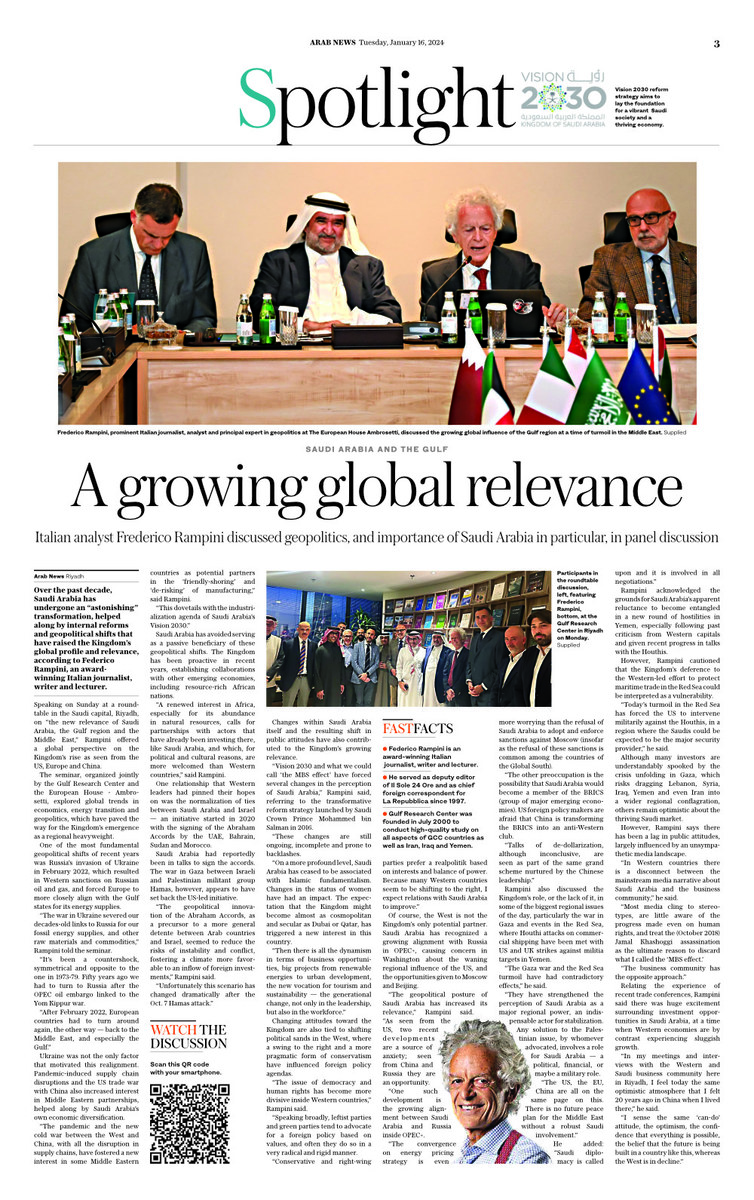Growing global relevance of Saudi Arabia and Gulf region highlighted at Riyadh roundtable discussion
RIYADH: Over the past decade, Saudi Arabia has undergone an “astonishing” transformation, helped along by internal reforms and geopolitical shifts that have raised the Kingdom’s global profile and relevance, according to Federico Rampini, an award-winning Italian journalist, writer and lecturer.
Speaking on Sunday at a roundtable in the Saudi capital, Riyadh, on “the new relevance of Saudi Arabia, the Gulf region and the Middle East,” Rampini offered a global perspective on the Kingdom’s rise as seen from the US, Europe and China.
The seminar, organized jointly by the Gulf Research Center and the European House – Ambrosetti, explored global trends in economics, energy transition and geopolitics, which have paved the way for the Kingdom’s emergence as a regional heavyweight.
One of the most fundamental geopolitical shifts of recent years was Russia’s invasion of Ukraine in February 2022, which resulted in Western sanctions on Russian oil and gas, and forced Europe to more closely align with the Gulf states for its energy supplies.
“The war in Ukraine severed our decades-old links to Russia for our fossil energy supplies, and other raw materials and commodities,” Rampini told the seminar.
“It’s been a countershock, symmetrical and opposite to the one in 1973-79. Fifty years ago we had to turn to Russia after the OPEC oil embargo linked to the Yom Kippur war.
“After February 2022, European countries had to turn around again, the other way — back to the Middle East, and especially the Gulf.”
Europe’s need to bolster its energy security amid rising prices also had knock-on effects for the renewables agenda, which had to be pushed onto the backburner.
“At the same time, the war in Ukraine challenged the most extreme, radical and naive environmentalist views on a fast and total decarbonization,” Rampini said.
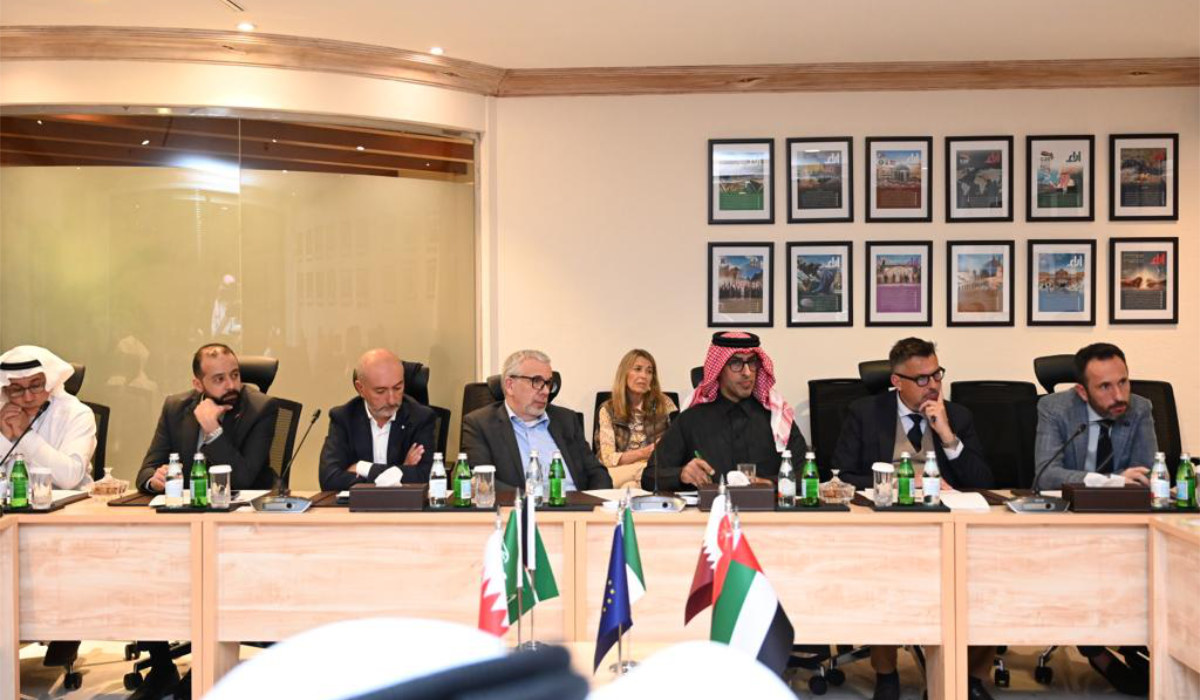
Ukraine was not the only factor that motivated this realignment. Pandemic-induced supply chain disruptions and the US trade war with China also increased interest in Middle Eastern partnerships, helped along by Saudi Arabia’s own economic diversification.
“The pandemic and the new cold war between the West and China, with all the disruption in supply chains, have fostered a new interest in some Middle Eastern countries as potential partners in the ‘friendly-shoring’ and ‘de-risking’ of manufacturing,” said Rampini.
“This dovetails with the industrialization agenda of Saudi Arabia’s Vision 2030.”
Saudi Arabia has avoided serving as a passive beneficiary of these geopolitical shifts. The Kingdom has been proactive in recent years, establishing collaborations with other emerging economies, including resource-rich African nations.
“A renewed interest in Africa, especially for its abundance in natural resources, calls for partnerships with actors that have already been investing there, like Saudi Arabia, and which, for political and cultural reasons, are more welcomed than Western countries,” said Rampini.
FASTFACTS
● Federico Rampini is an award-winning Italian journalist, writer and lecturer.
● He served as deputy editor of Il Sole 24 Ore and as chief foreign correspondent for La Repubblica since 1997.
● Gulf Research Center was founded in July 2000 to conduct high-quality study on all aspects of GCC countries as well as Iran, Iraq and Yemen.
One relationship that Western leaders had pinned their hopes on was the normalization of ties between Saudi Arabia and Israel — an initiative started in 2020 with the signing of the Abraham Accords by the UAE, Bahrain, Sudan and Morocco.
Saudi Arabia had reportedly been in talks to sign the accords. The war in Gaza between Israeli and Palestinian militant group Hamas, however, appears to have set back the US-led initiative.
“The geopolitical innovation of the Abraham Accords, as a precursor to a more general detente between Arab countries and Israel, seemed to reduce the risks of instability and conflict, fostering a climate more favorable to an inflow of foreign investments,” Rampini said.
“Unfortunately this scenario has changed dramatically after the Oct. 7 Hamas attack.”
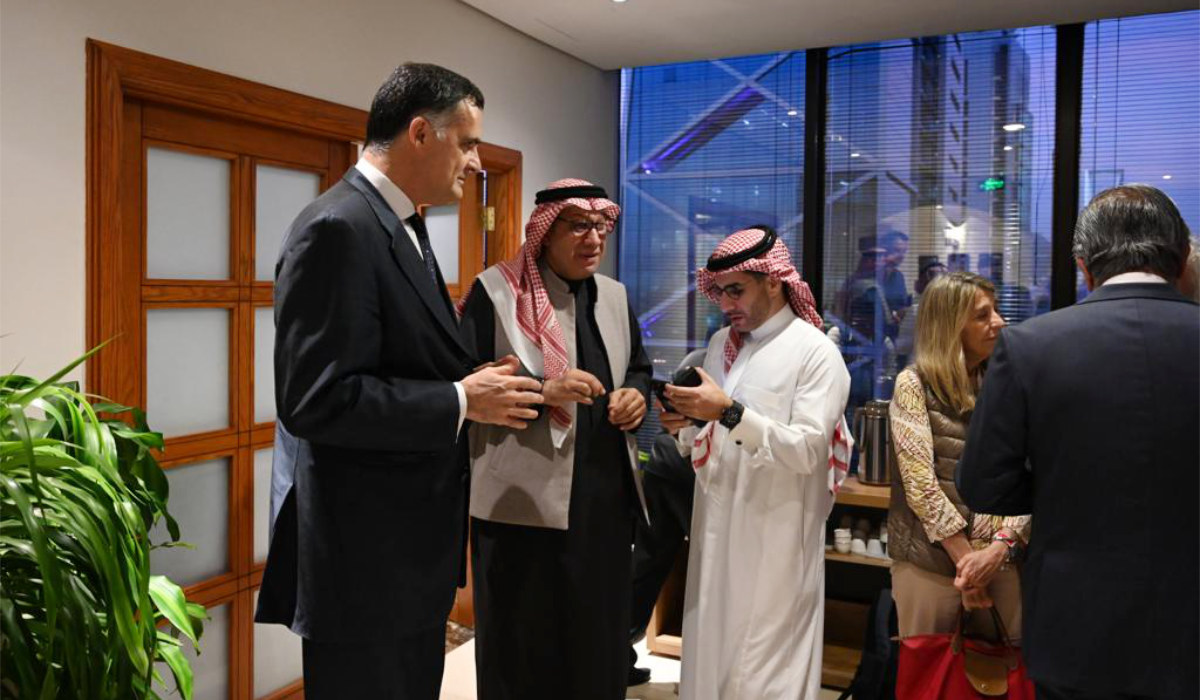
Changes within Saudi Arabia itself and the resulting shift in public attitudes have also contributed to the Kingdom’s growing relevance.
“Vision 2030 and what we could call ‘the MBS effect’ have forced several changes in the perception of Saudi Arabia,” Rampini said, referring to the transformative reform strategy launched by Saudi Crown Prince Mohammed bin Salman in 2016.
“These changes are still ongoing, incomplete and prone to backlashes.
“On a more profound level, Saudi Arabia has ceased to be associated with Islamic fundamentalism. Changes in the status of women have had an impact. The expectation that the Kingdom might become almost as cosmopolitan and secular as Dubai or Qatar, has triggered a new interest in this country.
“Then there is all the dynamism in terms of business opportunities, big projects from renewable energies to urban development, the new vocation for tourism and sustainability — the generational change, not only in the leadership, but also in the workforce.”
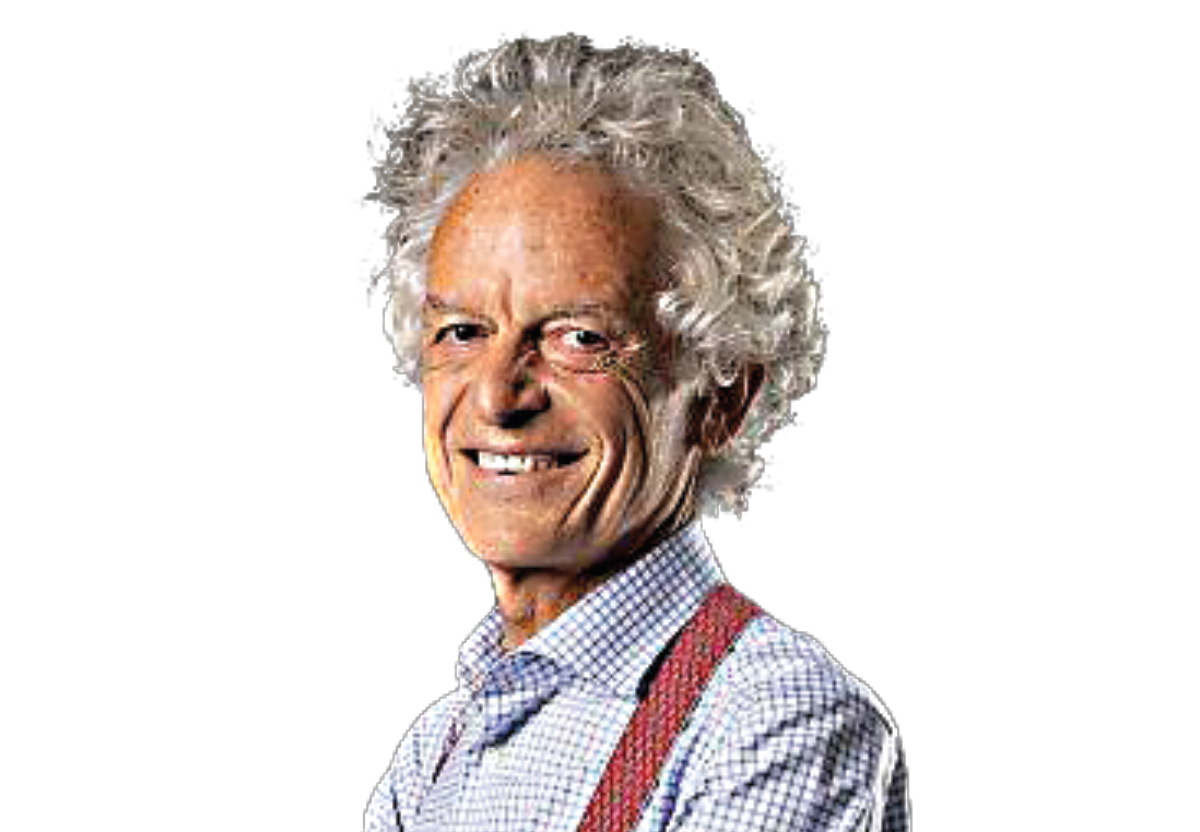
Changing attitudes toward the Kingdom are also tied to shifting political sands in the West, where a swing to the right and a more pragmatic form of conservatism have influenced foreign policy agendas.
“The issue of democracy and human rights has become more divisive inside Western countries,” Rampini said.
“Speaking broadly, leftist parties and green parties tend to advocate for a foreign policy based on values, and often they do so in a very radical and rigid manner.
“Conservative and right-wing parties prefer a realpolitik based on interests and balance of power. Because many Western countries seem to be shifting to the right, I expect relations with Saudi Arabia to improve.”
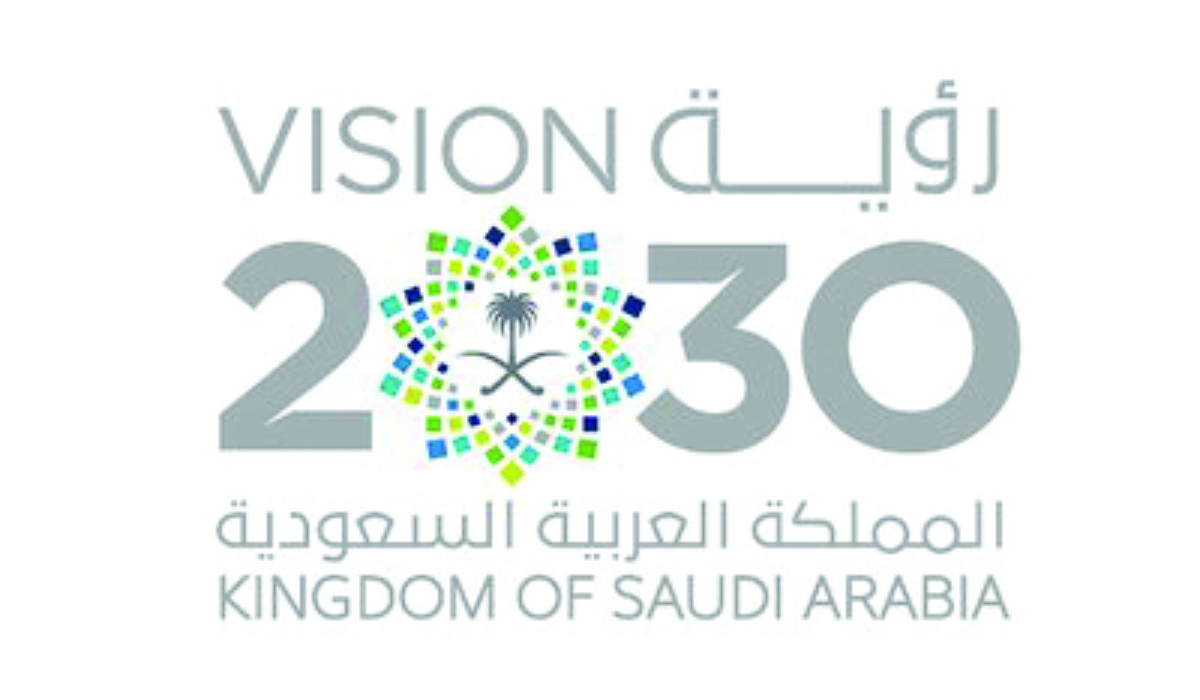
Of course, the West is not the Kingdom’s only potential partner. Saudi Arabia has recognized a growing alignment with Russia in OPEC+, causing concern in Washington about the waning regional influence of the US, and the opportunities given to Moscow and Beijing.
“The geopolitical posture of Saudi Arabia has increased its relevance,” Rampini said. “As seen from the US, two recent developments are a source of anxiety; seen from China and Russia they are an opportunity.
“One such development is the growing alignment between Saudi Arabia and Russia inside OPEC+.
“The convergence on energy pricing strategy is even more worrying than the refusal of Saudi Arabia to adopt and enforce sanctions against Moscow (insofar as the refusal of these sanctions is common among the countries of the Global South).
“The other preoccupation is the possibility that Saudi Arabia would become a member of the BRICS (group of major emerging economies). US foreign policy makers are afraid that China is transforming the BRICS into an anti-Western club.
“Talks of de-dollarization, although inconclusive, are seen as part of the same grand scheme nurtured by the Chinese leadership.”
Saudi Arabia received an invitation to join the BRICS bloc, originally made up of Brazil, Russia, India, China and South Africa, at the group’s 2023 summit in Cape Town. Although it is yet to respond to the invite, the Kingdom would be an economic heavyweight were it to join.
And even if Riyadh chooses to remain outside the BRICS, its relationship with the bloc’s biggest economy, China, has borne fruit in other ways — much to the chagrin of the US.
“China’s role in fostering a diplomatic normalization between Saudi Arabia and Iran has been praised for its positive outcome, but it has increased the suspicion that Beijing is trying to tow away Saudi Arabia from its traditional alliance with the US,” Rampini said.
Rampini also discussed the Kingdom’s role, or the lack of it, in some of the biggest regional issues of the day, particularly the war in Gaza and events in the Red Sea, where Houthi attacks on commercial shipping have been met with US and UK strikes against militia targets in Yemen.
“The Gaza war and the Red Sea turmoil have had contradictory effects,” he said.
“They have strengthened the perception of Saudi Arabia as a major regional power, an indispensable actor for stabilization. Any solution to the Palestinian issue, by whomever advocated, involves a role for Saudi Arabia — a political, financial, or maybe a military role.
“The US, the EU, China are all on the same page on this. There is no future peace plan for the Middle East without a robust Saudi involvement.”
He added: “Saudi diplomacy is called upon and it is involved in all negotiations.”
Rampini acknowledged the grounds for Saudi Arabia’s apparent reluctance to become entangled in a new round of hostilities in Yemen, especially following past criticism from Western capitals and given recent progress in talks with the Houthis.
However, Rampini cautioned that the Kingdom’s deference to the Western-led effort to protect maritime trade in the Red Sea could be interpreted as a vulnerability.
“Today’s turmoil in the Red Sea has forced the US to intervene militarily against the Houthis, in a region where the Saudis could be expected to be the major security provider,” he said.
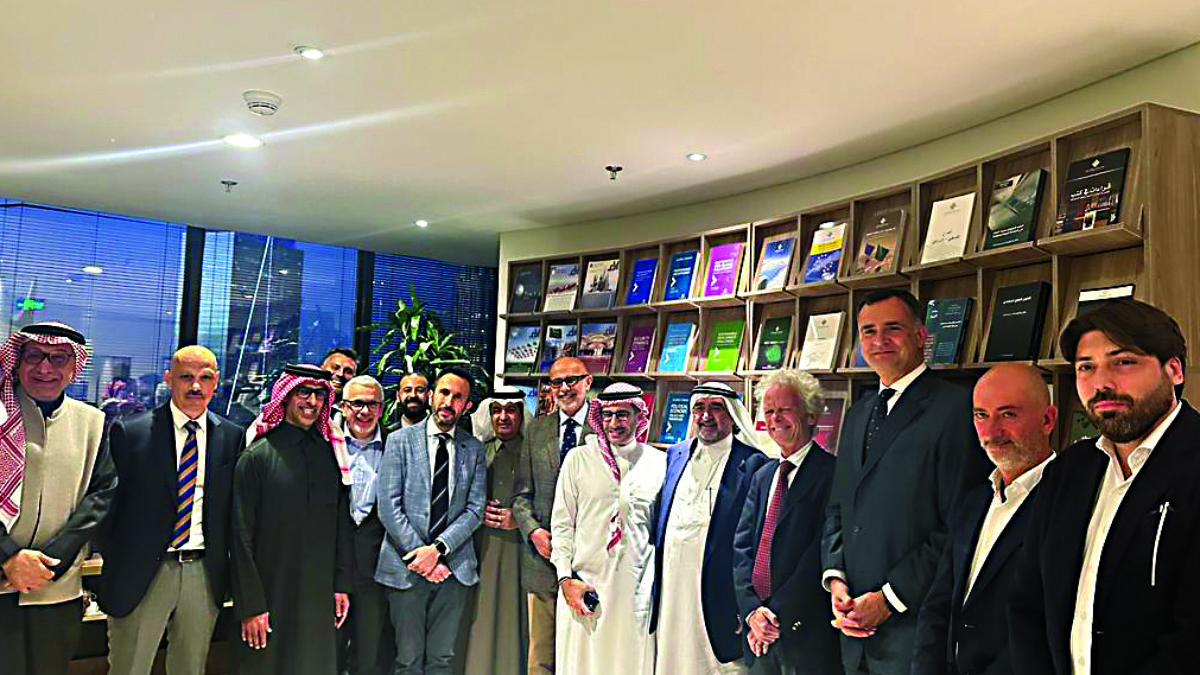
“I know that these remarks can irritate the Saudis, who remember how they were pressured by the international community, including the US, to end their military action in Yemen.
Israel and the US were apparently blindsided by the Oct. 7 Hamas attack — an intelligence failure that he believes reflects poorly not only on Israel, but also the wider Gulf region, according to Rampini.
“There have been multiple intelligence failures before the Hamas attack. The Israeli failure has been exposed first and foremost, the US failure, too,” he said.
“But one must wonder why other actors in the region were not adequately alerted to the fact that Iran and Hamas would do anything in order to prevent the ultimate Israeli-Arab normalization.”
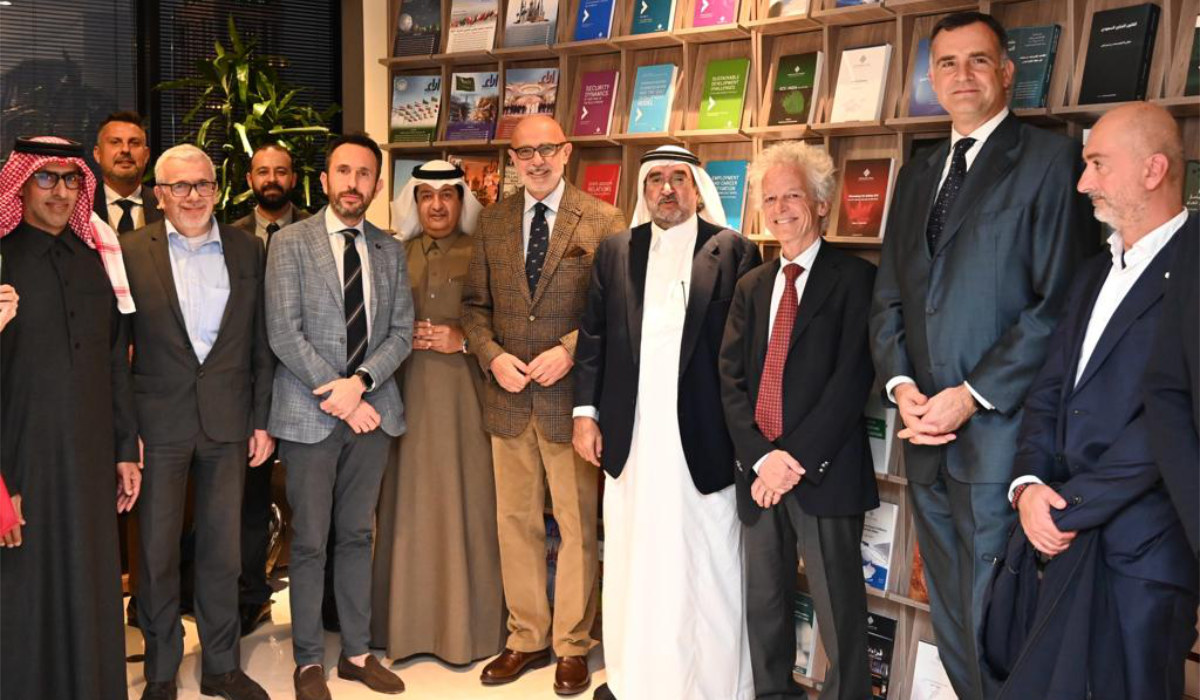
Although many investors are understandably spooked by the crisis unfolding in Gaza, which risks dragging Lebanon, Syria, Iraq, Yemen and even Iran into a wider regional conflagration, others remain optimistic about the thriving Saudi market.
However, Rampini says there has been a lag in public attitudes, largely influenced by an unsympathetic media landscape.
“In Western countries there is a disconnect between the mainstream media narrative about Saudi Arabia and the business community,” he said.
“Most media cling to stereotypes, are little aware of the progress made even on human rights, and treat the (October 2018) Jamal Khashoggi assassination as the ultimate reason to discard what I called the ‘MBS effect.’
“The business community has the opposite approach.”
Relating the experience of recent trade conferences, Rampini said there was huge excitement surrounding investment opportunities in Saudi Arabia, at a time when Western economies are by contrast experiencing sluggish growth.
“In my meetings and interviews with the Western and Saudi business community here in Riyadh, I feel today the same optimistic atmosphere that I felt 20 years ago in China when I lived there,” he said.
“I sense the same ‘can-do’ attitude, the optimism, the confidence that everything is possible, the belief that the future is being built in a country like this, whereas the West is in decline.”
